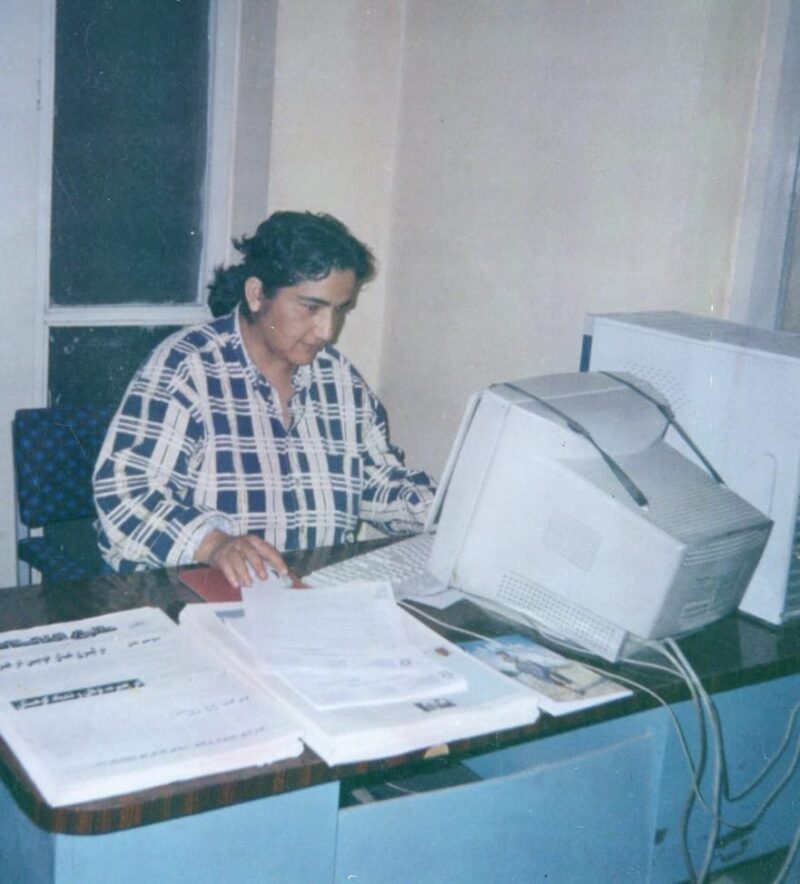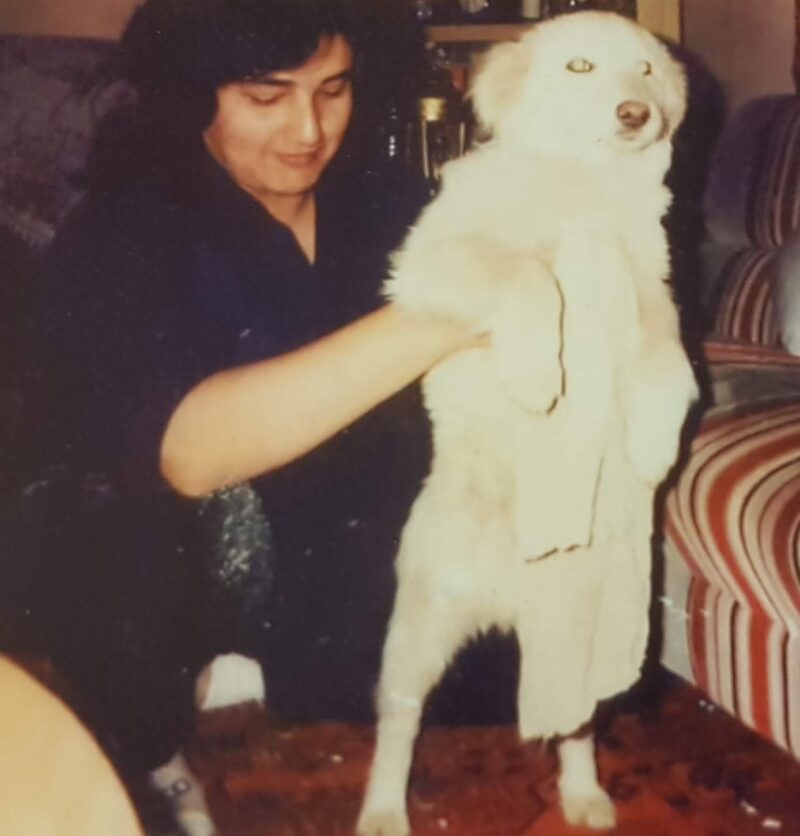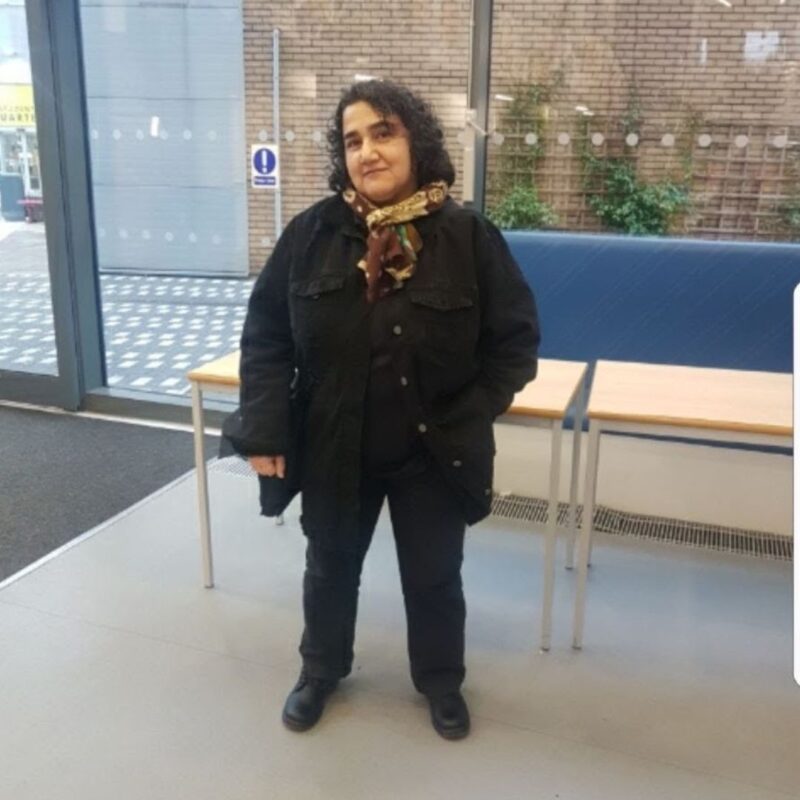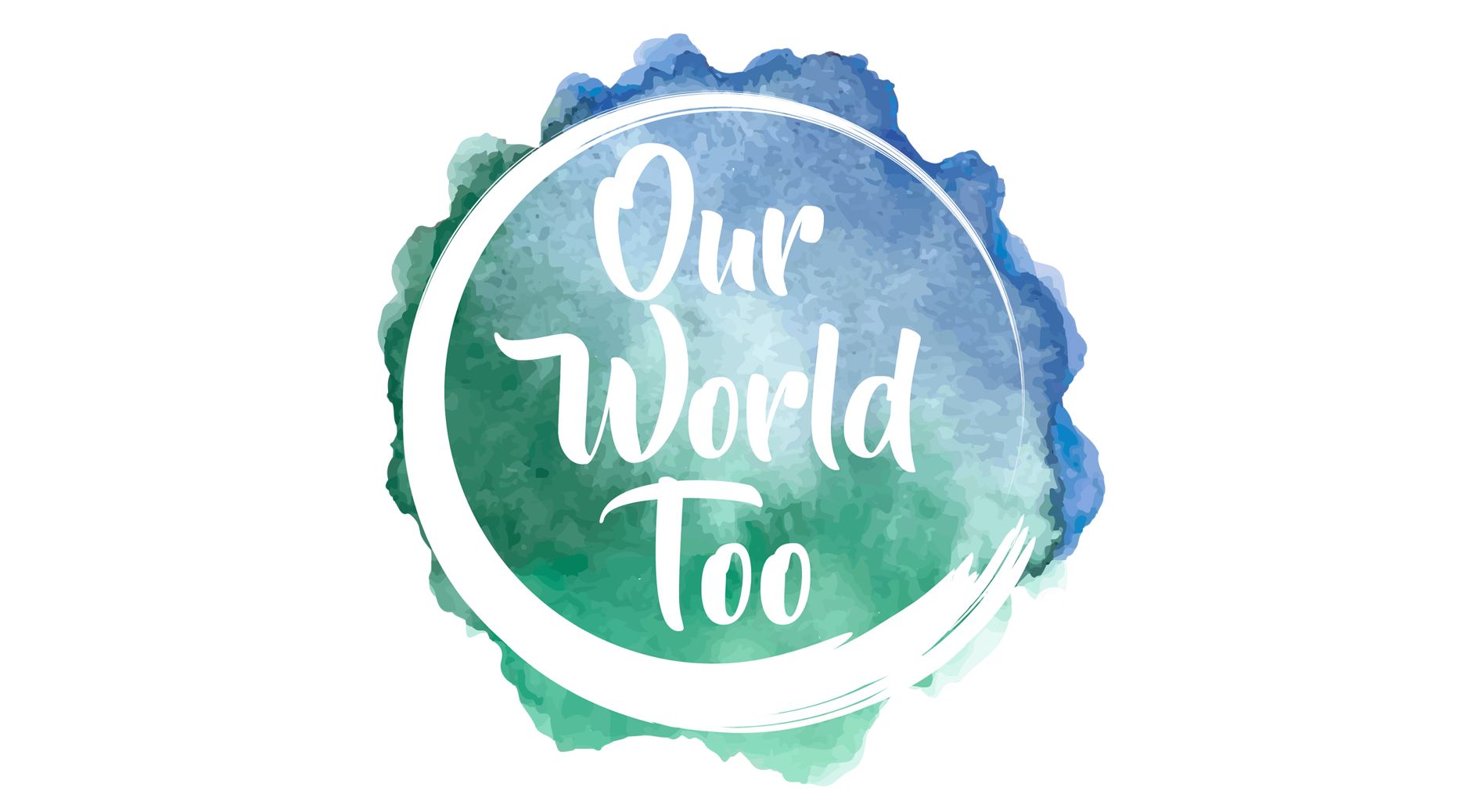You become an object; your views are never in the media.
I didn’t want to leave, I only agreed because I didn’t want my mother to suffer. She had to leave Afghanistan because of me and now I had to leave Pakistan because of the threats made against me by the Taliban. Originally, I wanted to go to the US, but there weren’t any flights for a couple of days, so I had to catch an earlier flight to the UK instead. I said bye to my mother, I kissed her feet and apologised for putting her through all this stress, I felt sorry because I felt I always stressed her out.
As a child I had a sheltered life, full of love and surrounded by my family. Growing up I wasn’t serious about studying but I clearly remember one day I went to pick up my mom from the school where she taught. My dad left the car to talk to a woman and usually people came up to him because he was respected in the community so when he returned, I asked him who she was, and he replied she was a judge, and everyone respected her. Right then I told my father I’ll be like her one day. He took it as a joke at the time, but I wanted to make him proud. That moment changed my life because I had a goal now. Even my tutors were shocked when I started working harder.
I wasn’t the top of my class, but I challenged everything and the boys in my class didn’t like that. They used to analyse everything the girls did; it was very much religion vs. culture. Recently, a friend from university said if it wasn’t for me the other girls in my class would’ve left.
When I got my university entrance exam results, I was able to apply to study Sharia Law in Kabul University. When I showed my dad my results, he was so happy he started saying he’ll buy me a car and a house, and I knew I had made him proud. Marzia the silly had become Marzia the dedicated. My dad passed away not long afterwards but I wanted to carry on with my education. I wasn’t the top of my class, but I challenged everything and the boys in my class didn’t like that. They used to analyse everything the girls did; it was very much religion vs. culture. Recently, a friend from university said if it wasn’t for me the other girls in my class would’ve left.
To my surprise after university, I managed to get a job in the Supreme Court. I worked in a family court in my hometown and my boss was also a woman, she was very supportive and put me forward for training to become a judge. I still had to deal with negativity from my colleagues who used to say good women didn’t go to court, but this negativity encouraged me to stand for something. I worked very hard, but the more cases I read the more I realised judgments were made in favour of men. I was promoted to Head of the Family Department, but my boss had passed away and I was very young, with no other women around. I found it scary. I faced a lot of challenges and people always doubted me.
I had to judge the case of a young married woman who was accused of adultery. I remember questioning her and in response she shouted at me and said because of my background I couldn’t understand her situation. I remember vividly how her entire body seemed to be crying. She said she had no life; her husband didn’t respect her and only called her once a week when he needed sex.

Her case challenged my perspective, my dad never treated my mothers badly. In university, the girls used to tell me stories of their fathers beating their mothers but I couldn’t comprehend the situation until that day. She changed me and made me realise as a judge I was duty-bound to the law, but as a human, I had to help. I quickly realised that once a woman is divorced, she has nowhere to go. After discussing the idea with my family, my uncles gifted me a small place on a farm. Officially the first hostel for women was established in Afghanistan in 2008 but I’d already established one in 1994. I was only 23 at the time and I didn’t grow up with technology so I’m not sure how I came up with the idea. My mother used to give the women basic education and some of my family in the US sent us money to buy books for the children. My friend introduced me to UNICEF and the representative visited my shelter and registered me as part of the Afghan Women’s Social and Cultural Project which was launched to change the perception of women in society, but it wasn’t popular in the community.
I grew up in Afghanistan during the regime change when King Zahir Shah fell but my family wasn’t affected because we weren’t involved in politics or the army, but it changed when the Taliban came into power in 1997. My work didn’t sit well with the Taliban because I was a woman, a judge and because they viewed my work as encouraging divorce. One day they came to my house to look for me and I had to hide in a tiny alley for 6 hours while they searched through everything. At that point my family knew I had no choice but to leave the country and we fled to Pakistan.
It wasn’t long before I heard a school was for sale and with the help of other judges, we managed to buy it. It was all over the media and in newspapers, people were shocked at how a refugee could have done this. Some activities chose to end their activities because of the Taliban but I continued with my work and it was worth it because majority of my students from that school are doing PhD’s now.

In Peshawar, the people were very welcoming, and I didn’t feel like I didn’t belong, but I used to see young Afghan boys and girls selling water on the streets and I told my friend I wanted to establish a school for them. She got angry because she was worried for my safety, but I couldn’t let go of the idea. If I needed to get things done officially, I would have to learn Urdu, so I joined a free class for refugees. It wasn’t long before I heard a school was for sale and with the help of other judges, we managed to buy it. It was all over the media and in newspapers, people were shocked at how a refugee could have done this. Some activities chose to end their activities because of the Taliban but I continued with my work and it was worth it because the majority of my students from that school are doing PhD’s now.
After the Taliban regime fell, I went back to Kabul and resumed my work with the ANCB and participated in our first conference. While I was there, I received a letter saying I should kill myself and accusing me of not being a Muslim anymore. I didn’t tell my mother about it. Meanwhile my school in Pakistan was shut down because I was accused of teaching Christianity even though I had nothing to do with designing the curriculum, that’s not my area of expertise. I did manage to resolve the situation, but it wasn’t long before I started receiving more letters in Pakistan. The Pakistani police advised us to move and I thought about closing the school, but I knew the children would suffer so I continued.
During another trip to Kabul, I learned my mother was in hospital in Pakistan. I went back to see her, and I remember the parking lot being really quiet. As I was leaving the hospital and walking back towards the carpark a car came out of nowhere and hit me. I had been targeted because of my work. I broke my back, legs and some teeth. I was in a plaster for 6 months and it was very tough for my mother to see me like this. My driver had seen the entire incident and had to be on medication for stress for a long time. After I recovered, I went back to work in Kabul but one day my mother called me and gave me strict instructions to come straight home. When I got home my mother broke down and told me I should leave the country. Whilst I was away my family had received letters from the Taliban and they had also been asking the local shop keepers about me.
I had projects and offices in villages in Afghanistan because of my NGO. Who am I here? No one would leave unless they’re forced to. Refugees are viewed negatively, and I thought to myself, Marzia, you have to prove them wrong about refugees.
On the flight to the UK, I was in shock. I couldn’t believe I was 43 and leaving my family behind to go to a different country alone. I wasn’t born here, and it wasn’t on my bucket list to come here. I was forced to come here otherwise why would I be here? Previously, I travelled to Japan, Italy and Canada but I never dreamed I would be seeking asylum at the age of 43. I had projects and offices in villages in Afghanistan because of my NGO. Who am I here? No one would leave unless they’re forced to. Refugees are viewed negatively, and I thought to myself, Marzia, you have to prove them wrong about refugees. I didn’t know any English when I arrived, so I enrolled in Oldham College but the students there used to call me grandma. I was a judge and they reduced me to a grandma. People need to change their behaviour too not just refugees. I know what I used to have but I don’t dwell on it. I failed a lot, but I never gave up despite the barriers and discouragement that I received from some people.
The media doesn’t highlight the mother who couldn’t speak English but raised 5 children who all became doctors and are now contributing to society. The mother is the main person in the household and regardless of whether she can speak English or not she made their progress possible, but the media doesn’t make it known.
My passion to help others came from my home life and from my mother, and my confidence comes from my father who was supportive and encouraging. It is because of them I don’t accept barriers. I left Afghanistan and learnt English to stand against the Taliban and continue my activism. It takes years to learn English through courses, but people judge us even when we are trying. I can speak 5 languages and people are still asking if I know English, can you say hi to me in my language? At least I learnt English at the age of 43. The media doesn’t highlight the mother who couldn’t speak English but raised 5 children who all became doctors and are now contributing to society. The mother is the main person in the household and regardless of whether she can speak English or not she made their progress possible, but the media doesn’t make it known.

No one thinks about the reality of living in the UK after you become a refugee. I was heading to the airport in a taxi and the driver was Caucasian, he said I shouldn’t talk in my language and I explained to him my sister is in Germany and she doesn’t know English how should I talk to her? When I came back, I invited him for coffee and explained our situation to him. You can’t solve problems with more problems, you solve it with peace. People always ask why refugees are here, we need to work on getting rid of this by giving people the right ideas and knowledge. We had a family, friends, food, home, a life before and people think we came here from nothing but it’s not true.
A refugee is someone who loses everything, they start again from 0 with no hope or ability to plan. When you’re a refugee you can’t plan your life, someone else is doing it for you and it’s difficult to accept.
A refugee is someone who loses everything, they start again from 0 with no hope or ability to plan. When you’re a refugee you can’t plan your life, someone else is doing it for you and it’s difficult to accept. I enrolled in college and waited for 2 years to be accepted because my progress depended on someone else’s decision. Refugees can’t make decisions for themselves; they are always waiting for someone else’s decision. You become an object; your views are never in the media. I would like to see more humanity and solidarity shown for the refugee community.
